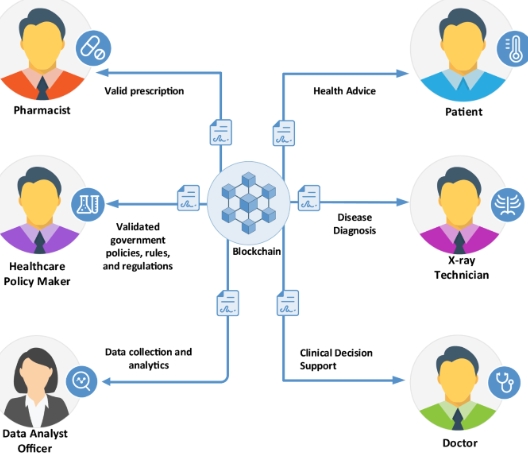Blockchain technology is transforming the way healthcare data is managed, providing increased security, efficiency, and transparency.
Increased Security and Privacy
Blockchain uses cryptographic algorithms to securely encrypt data, protecting patient information from unauthorized access or tampering.
Each block in the chain contains a timestamp and a link to the previous block, making it virtually impossible to alter the data without detection.
This ensures that patient records remain confidential and secure, reducing the risk of data breaches and identity theft.
Improved Data Accessibility
Blockchain technology allows for the secure sharing of healthcare data between providers, insurers, and patients.
Authorized parties can access patient records in real-time, eliminating the need for paper-based records and manual data entry.
This streamlines the healthcare process, reducing administrative costs and allowing for more timely and accurate care.
Enhanced Interoperability
Blockchain technology enables different healthcare systems to communicate and share data seamlessly.
This interoperability improves care coordination, ensuring that providers have a comprehensive view of a patient’s medical history and treatment plan.
Patients can also access and share their own health data, empowering them to take an active role in their healthcare decisions.
Efficient Claims Processing
Blockchain technology simplifies and speeds up the claims processing and reimbursement process for healthcare providers.
Smart contracts can automate the verification of services rendered, eligibility, and payment approval, reducing paperwork and administrative delays.
This results in faster payments for providers and improved cash flow management.
Transparent Drug Supply Chain
Blockchain technology can track the entire drug supply chain, from manufacturer to patient, ensuring the authenticity and quality of medications.
Each transaction is recorded in the blockchain, providing a transparent and immutable history of the drug’s journey.
This helps prevent counterfeit drugs from entering the market, safeguarding patient safety and improving pharmaceutical supply chain management.
In conclusion, blockchain technology is revolutionizing healthcare data management by enhancing security, improving accessibility, promoting interoperability, streamlining claims processing, and ensuring transparency in the drug supply chain. By leveraging blockchain technology, healthcare organizations can better protect patient data, improve care coordination, and drive efficiency in the healthcare industry.

